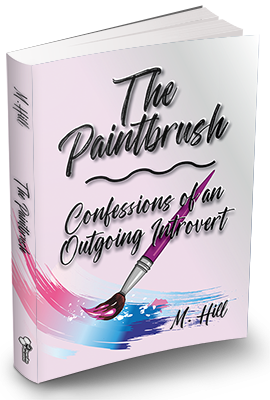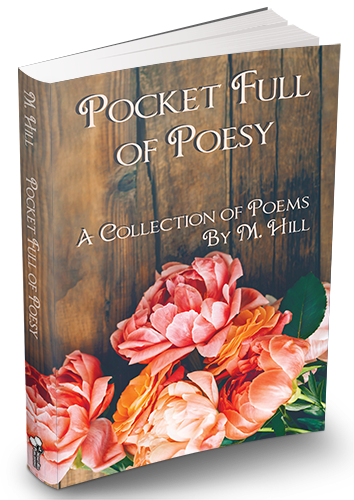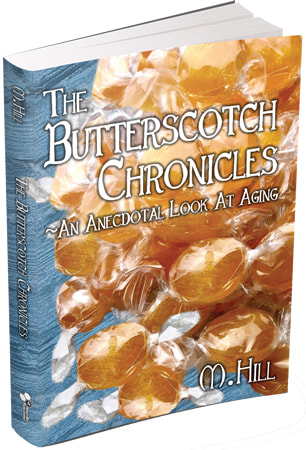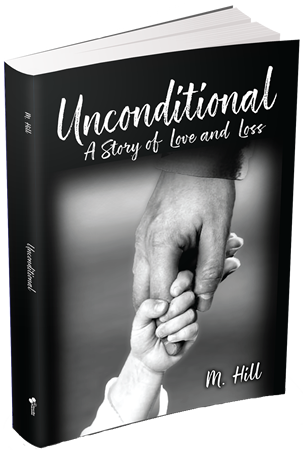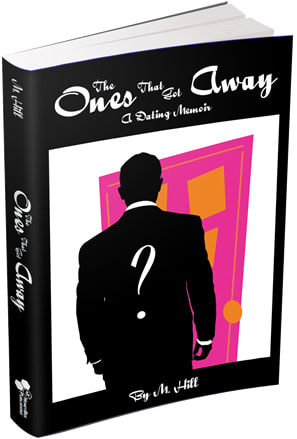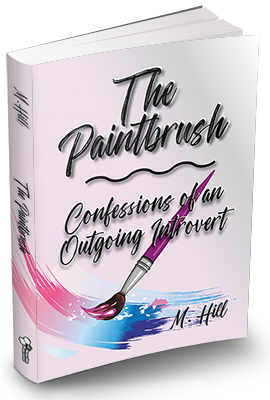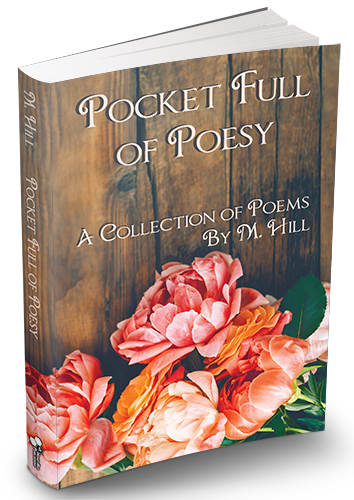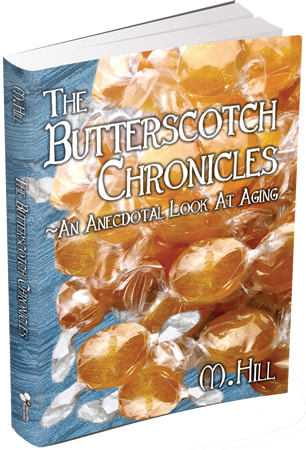Read an Excerpt:
Scroll down to read an excerpt of each book.
The Paintbrush
Confessions of an Outgoing Introvert
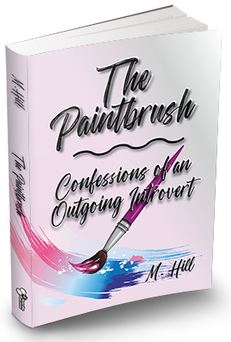
I know a fair number of people, and I must admit, I am different from most—I recognize that. Quirky is the term that best describes me, I think; although, I wouldn’t be a bit surprised to find some who would use the word strange. I wouldn’t be offended by that—it takes a lot to offend me. Although I’ve lived in Arizona for two decades now, I’m originally from New Jersey, so that probably has something to do with it. Those of us from the Northeast just don’t get ruffled easily--whatevs.
Did you ever wonder why people are so different? Does environment have any impact on who we are? Is there any validity to the nature vs. nurture argument? I mean, what makes each and every one of us who we are? Where we grow up likely does have some impact—and more than just the varying ways we identify things like soda vs. pop or sneakers vs. tennies. Our experiences shape us, for sure. And let’s not forget about genetics—each of us has innate underlying characteristics that blossom as we age. With so many variables, and so many people, the real mystery is how we all get along.
Years ago, I attended a personal development seminar program that generally focused on helping you understand who you are, what makes you tick and how you interact within different groups or communities. I saw it largely as a communication course. It was a bit grueling; but I did benefit from it tremendously—both professionally and personally—so… worth it.
One of the exercises involved was designed to demonstrate how we interface with others—to point out, maybe, how even though we’re different, we’re all very similar and “in it” together. We were each given some paper and told to draw our worlds. Someone drew a meadow filled with flowers. The environment—their world—was the meadow, they were one of the flowers, as was every other person or social group they interacted with. Someone else drew the ocean as their world with everyone in it a fish. Another drew a marina filled with boats. And one a night sky lit with stars. You get it. Having somewhat of a background with art, and painting in particular, I drew an artist’s palette.
Read more
Did you ever wonder why people are so different? Does environment have any impact on who we are? Is there any validity to the nature vs. nurture argument? I mean, what makes each and every one of us who we are? Where we grow up likely does have some impact—and more than just the varying ways we identify things like soda vs. pop or sneakers vs. tennies. Our experiences shape us, for sure. And let’s not forget about genetics—each of us has innate underlying characteristics that blossom as we age. With so many variables, and so many people, the real mystery is how we all get along.
Years ago, I attended a personal development seminar program that generally focused on helping you understand who you are, what makes you tick and how you interact within different groups or communities. I saw it largely as a communication course. It was a bit grueling; but I did benefit from it tremendously—both professionally and personally—so… worth it.
One of the exercises involved was designed to demonstrate how we interface with others—to point out, maybe, how even though we’re different, we’re all very similar and “in it” together. We were each given some paper and told to draw our worlds. Someone drew a meadow filled with flowers. The environment—their world—was the meadow, they were one of the flowers, as was every other person or social group they interacted with. Someone else drew the ocean as their world with everyone in it a fish. Another drew a marina filled with boats. And one a night sky lit with stars. You get it. Having somewhat of a background with art, and painting in particular, I drew an artist’s palette.
Read more
Pocket Full of Poesy
A Collection of Poems
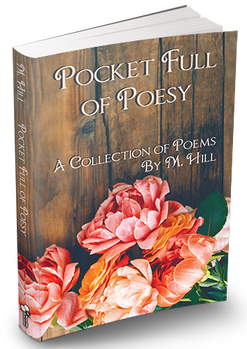
After the release of Butterscotch I found myself, once again, being asked about my next book. I told the inquirers that I didn’t have any plans for another book—I needed to be inspired, I offered up by way of further explanation. More than a few of them said I should do something with my poems. You may have been wondering when I was going to address the poetry aspect of this book. Well, here it is.
When I was much younger I used to write poems (using the word loosely). One of my childhood friends reminded me how I wrote poems about my natural father when I was in middle school. I didn’t even remember that. I do remember writing silly little poems when I was college-age, either about a particular person or event. There were even times, at parties, when I’d be asked by veritable strangers to write a poem for them. I’d ask them to tell me things about their lives that they’d like to see in the poem, then spend a few minutes constructing it. I had a knack for formulating details in rhyme about something specific.
Now a poet is a person possessing special powers of imagination or expression, who writes poems. So, although I meet the technical definition, I certainly do not consider myself a classical poet. Think about Robert Frost, “Two roads diverged in a wood, and I took the one less traveled…” Introspective. Or Dylan Thomas, “Do not go gentle into that goodnight…rage, rage against the dying of the light.” Deep. Or my favorite, Joyce Kilmer, “Poems are made by fools like me, but only God can make a tree.” Profound. No, my poems can’t compare to these. But they are fun for me. Something will strike me and I’ll have a flash of inspiration. When this happens I immediately jot down ideas so as not to lose the intensity or charge of the intention. Then I assemble, tweak and finesse the words into a playful composition.
I’m primarily Irish and German. And I accredit my Irish heritage with my ability to tell stories in an entertaining fashion. As far as rhyme goes, my natural father also wrote poetry, so my skill could be an apple-falling-not-far-from-the-tree type of thing. I never saw any of his poetry. I know he wrote for my mother, and he wrote for my stepmother as well. I suspect his poetry was along the lines of the romantic poets, like Keats, but I don’t know for sure. Even without seeing any of his works, though, I’m pretty sure his style wasn’t like mine. Mine is a cross between, say, traditional iambic pentameter and… Dr. Seuss—with a splash of Clement Moore. So I’m not deep, generally speaking—but I do have few poems with a little bit of depth to them.
There’s a line in Peter Gabriel’s song Mercy Street—about poet Anne Sexton—that I relate to, which says “words support like bone.” She was deeply troubled. I am not; but, when I do occasionally find myself mired in the rut of monotony, I often turn to my writing for a little saving grace. So. . .
Without further delay
Let’s get underway,
And take a swift look
At the poems in this book.
Just a quick reminder,
Here at the start--
Inspired by life,
These poems come from my heart.
Some are short, some are long;
Some are silly, some sweet.
With quite a variety,
May each one be a treat.
Some may be shallow,
Some may be deep,
Some might make you laugh,
For some, you might weep.
There are those that are quirky;
And those that are tender,
Those you’ll connect with
And those you’ll remember.
Overall they are light and meant to delight;
So sit for a while—my wish is you’ll smile.
This is it, we’ve arrived, at the jumping-off place.
And here they are now for your welcome embrace.
Read more. . .
When I was much younger I used to write poems (using the word loosely). One of my childhood friends reminded me how I wrote poems about my natural father when I was in middle school. I didn’t even remember that. I do remember writing silly little poems when I was college-age, either about a particular person or event. There were even times, at parties, when I’d be asked by veritable strangers to write a poem for them. I’d ask them to tell me things about their lives that they’d like to see in the poem, then spend a few minutes constructing it. I had a knack for formulating details in rhyme about something specific.
Now a poet is a person possessing special powers of imagination or expression, who writes poems. So, although I meet the technical definition, I certainly do not consider myself a classical poet. Think about Robert Frost, “Two roads diverged in a wood, and I took the one less traveled…” Introspective. Or Dylan Thomas, “Do not go gentle into that goodnight…rage, rage against the dying of the light.” Deep. Or my favorite, Joyce Kilmer, “Poems are made by fools like me, but only God can make a tree.” Profound. No, my poems can’t compare to these. But they are fun for me. Something will strike me and I’ll have a flash of inspiration. When this happens I immediately jot down ideas so as not to lose the intensity or charge of the intention. Then I assemble, tweak and finesse the words into a playful composition.
I’m primarily Irish and German. And I accredit my Irish heritage with my ability to tell stories in an entertaining fashion. As far as rhyme goes, my natural father also wrote poetry, so my skill could be an apple-falling-not-far-from-the-tree type of thing. I never saw any of his poetry. I know he wrote for my mother, and he wrote for my stepmother as well. I suspect his poetry was along the lines of the romantic poets, like Keats, but I don’t know for sure. Even without seeing any of his works, though, I’m pretty sure his style wasn’t like mine. Mine is a cross between, say, traditional iambic pentameter and… Dr. Seuss—with a splash of Clement Moore. So I’m not deep, generally speaking—but I do have few poems with a little bit of depth to them.
There’s a line in Peter Gabriel’s song Mercy Street—about poet Anne Sexton—that I relate to, which says “words support like bone.” She was deeply troubled. I am not; but, when I do occasionally find myself mired in the rut of monotony, I often turn to my writing for a little saving grace. So. . .
Without further delay
Let’s get underway,
And take a swift look
At the poems in this book.
Just a quick reminder,
Here at the start--
Inspired by life,
These poems come from my heart.
Some are short, some are long;
Some are silly, some sweet.
With quite a variety,
May each one be a treat.
Some may be shallow,
Some may be deep,
Some might make you laugh,
For some, you might weep.
There are those that are quirky;
And those that are tender,
Those you’ll connect with
And those you’ll remember.
Overall they are light and meant to delight;
So sit for a while—my wish is you’ll smile.
This is it, we’ve arrived, at the jumping-off place.
And here they are now for your welcome embrace.
Read more. . .
The Butterscotch Chronicles
An Anecdotal Look at Aging
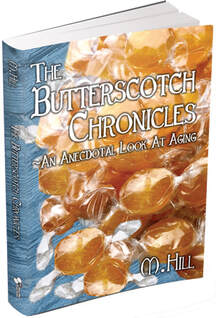
We were just back from Alaska when my dad called to tell me that his bridge came out—and apparently, it was my fault. He wasn’t mad at me, but since I was the one who mistakenly bought the incorrect candy for our vacation snack bag, the blame fell squarely on my shoulders.
My father likes Werther’s Originals. Who doesn’t? I think they’re marketed as blissful indulgence, and that’s not just some manipulative Madison Avenue mumbo jumbo, they really are decadent. What sets these tasty treats apart from their butterscotch ancestry is, of course, the cream. Most caramels are made with milk, but by using cream, you get a rich, velvety texture that can only be described as indulgent—so the admen really nailed it with this one. Now here’s the thing. Werther’s Originals were initially a hard candy, but over the years, as the company grew, they naturally expanded their line to include many spin-offs of their steadfast original—and this is where it all went awry. I bought the ones with a creamy caramel filling. Oops—my bad.
Once my dad penetrated the sweet, hard exterior, it was the chewy, gooey confection inside that got ahold of his nearly 60-year-old bridge and dislodged it. As a result, he had to have some pretty extensive dental work, but he’s fine. Without getting into all the details, it may have been a blessing in disguise. So, anyway, his dental calamity notwithstanding, the impetus for this story is actually the candy, in and of itself.
My dad is in his 80s now and he always seems to have these gold foil-wrapped suckers with him everywhere he goes. I know when he was a younger man he was not prone to carrying around candy in his pockets, so this behavior is relatively recent. And although I wasn’t quite four years old when my grandfather passed away, I can remember him always having candy in his pockets, too. So it got me thinking… when does this habit start? And more importantly, how long before I begin to do the same thing?
Read More. . .
My father likes Werther’s Originals. Who doesn’t? I think they’re marketed as blissful indulgence, and that’s not just some manipulative Madison Avenue mumbo jumbo, they really are decadent. What sets these tasty treats apart from their butterscotch ancestry is, of course, the cream. Most caramels are made with milk, but by using cream, you get a rich, velvety texture that can only be described as indulgent—so the admen really nailed it with this one. Now here’s the thing. Werther’s Originals were initially a hard candy, but over the years, as the company grew, they naturally expanded their line to include many spin-offs of their steadfast original—and this is where it all went awry. I bought the ones with a creamy caramel filling. Oops—my bad.
Once my dad penetrated the sweet, hard exterior, it was the chewy, gooey confection inside that got ahold of his nearly 60-year-old bridge and dislodged it. As a result, he had to have some pretty extensive dental work, but he’s fine. Without getting into all the details, it may have been a blessing in disguise. So, anyway, his dental calamity notwithstanding, the impetus for this story is actually the candy, in and of itself.
My dad is in his 80s now and he always seems to have these gold foil-wrapped suckers with him everywhere he goes. I know when he was a younger man he was not prone to carrying around candy in his pockets, so this behavior is relatively recent. And although I wasn’t quite four years old when my grandfather passed away, I can remember him always having candy in his pockets, too. So it got me thinking… when does this habit start? And more importantly, how long before I begin to do the same thing?
Read More. . .
Unconditional
A Story of Love and Loss
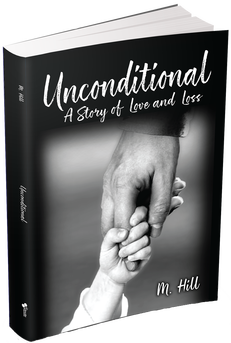
I can almost hear the steady hum of the engines inside the cocoon 38,000 miles up in the air. I say almost because I’m not actually in an airplane, not physically anyway. I’m only up there in my imagination—which is vivid.
To me, this is a gift. I can close my eyes and transport myself to places other than my immediate surroundings. Truth be told, I do this sometimes even with my eyes open; but not when I’m driving—well, not usually, anyway. I have a tendency to see things through what I call the cosmic camera. Within my mind’s eye, I see things from afar. What’s strange is how I sometimes interact with the camera even though it’s not really there—breaking the fourth wall simply for my own enjoyment.
I used to do a fair amount of theater and thought this was where this aspect of my personality came from; you know, being trained to put yourself into some situation and see it from many angles in order to flesh out a character and tell a story. I realize now this is not the case. I’m just a slightly peculiar person with a vivid imagination. Quirky is the word I’m most comfortable with.
My name is Melissa and I’m one of three children born to my parents. I’m the one in the middle. This story begins with my father, Steve—also a middle child. I’m not sure that’s relevant but I point it out just the same.
In my mind, I’m flying east for his funeral.
Why do I insist on taking the red-eye? It’s practical, that’s for sure, but I never sleep. I always think I’m going to, but I don’t. I may doze 10 minutes here, 10 minutes there, but that hardly constitutes a good night’s sleep. I’m in the upfront section of coach—economy class I think they call it. The engines are droning on behind me. I’m sure these are the same sounds on a daytime flight, but at night, in the darkness of the cabin, they create a feeling of isolation. I’m all alone. I’m sitting with about 285 other people, but I’m all alone in the isolated confines of my seat… 8D.
It’s in between the dozing that I just sit there, numb. My father’s funeral. My mind is a torrent of memories and feelings and at the same time it is devoid of any activity at all—as I said, numb.
The death of a parent is an odd thing. We know from an early age that we will outlive our parents—statistically speaking—but that doesn’t make it any easier. Even if you’re blessed to have your parents live well into old age, you know eventually they’re going to pass away, but that doesn’t make it any easier either. Loss is hard. Feelings are complicated. And I’ll tell you what else doesn’t make it any easier: When this loss, this final loss, is the fourth time you lose your father.
Read More. . .
To me, this is a gift. I can close my eyes and transport myself to places other than my immediate surroundings. Truth be told, I do this sometimes even with my eyes open; but not when I’m driving—well, not usually, anyway. I have a tendency to see things through what I call the cosmic camera. Within my mind’s eye, I see things from afar. What’s strange is how I sometimes interact with the camera even though it’s not really there—breaking the fourth wall simply for my own enjoyment.
I used to do a fair amount of theater and thought this was where this aspect of my personality came from; you know, being trained to put yourself into some situation and see it from many angles in order to flesh out a character and tell a story. I realize now this is not the case. I’m just a slightly peculiar person with a vivid imagination. Quirky is the word I’m most comfortable with.
My name is Melissa and I’m one of three children born to my parents. I’m the one in the middle. This story begins with my father, Steve—also a middle child. I’m not sure that’s relevant but I point it out just the same.
In my mind, I’m flying east for his funeral.
Why do I insist on taking the red-eye? It’s practical, that’s for sure, but I never sleep. I always think I’m going to, but I don’t. I may doze 10 minutes here, 10 minutes there, but that hardly constitutes a good night’s sleep. I’m in the upfront section of coach—economy class I think they call it. The engines are droning on behind me. I’m sure these are the same sounds on a daytime flight, but at night, in the darkness of the cabin, they create a feeling of isolation. I’m all alone. I’m sitting with about 285 other people, but I’m all alone in the isolated confines of my seat… 8D.
It’s in between the dozing that I just sit there, numb. My father’s funeral. My mind is a torrent of memories and feelings and at the same time it is devoid of any activity at all—as I said, numb.
The death of a parent is an odd thing. We know from an early age that we will outlive our parents—statistically speaking—but that doesn’t make it any easier. Even if you’re blessed to have your parents live well into old age, you know eventually they’re going to pass away, but that doesn’t make it any easier either. Loss is hard. Feelings are complicated. And I’ll tell you what else doesn’t make it any easier: When this loss, this final loss, is the fourth time you lose your father.
Read More. . .
The Ones That Got Away
A Dating Memoir
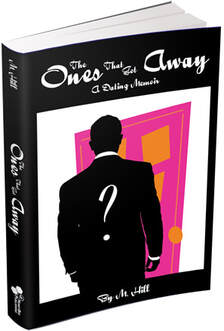
My name is not Rita. It's amazing how similar Rita and I are—except for the fact that she isn't real. I made her up. I made her up about 30 years ago. And, truth be told, I forgot about her for most of that time. I recently moved, and not just some little move like across town or even to a different part of the state; oh no, I really moved—across the whole country, actually. I suppose I should tell you that I am 40 years old. I wasn't 40 when I made this bold move, though, so don't think it was a midlife crisis sort of thing because it wasn't. At least I don't think it was. I was only 39, so how could it have been?
I should also tell you that I am very sentimental. It seems that almost everything holds some special meaning for me: where something came from, who perhaps gave it to me, what was going on in my life when I acquired it, blah, blah, blah. Not everything can have sentimental value though, can it? Anyway, for someone so sentimental it is quite surprising that I would have thrown out an entire storage container full of correspondence that I had dutifully saved for nearly 33 years. In it was everything from greeting cards, get well cards (more on this later), college correspondence and, yes, even some love letters. I sort of regret throwing it all away, but what can I do? It's gone.
I got rid of quite a lot prior to my move, and being the sentimentalist that you now know me to be, you can imagine that it wasn't easy. Here's the thing. I was putting practically all of my possessions into storage, for what would turn out to be six months, while I eagerly awaited the construction of my new desert home. Once it was finished, I would have to transport all my aforementioned worldly possessions across our fine country. Did I really need to bring my old patio set and shitty grill which, incidentally, ran only on propane when it felt so inclined to actually ignite? Not really. I had a natural gas line run to my patio for the grill. New house, new grill.
Out with the old, in with the new. That was the motto I was adopting. Let's get rid of the useless crap that I had been hoarding. I actually got rid of a full-size sheet set that was so old you could see through it. I hadn't even had a full-size mattress for years, but my grandmother gave me that set when I was 13. She passed away when I was 15. I loved her dearly. How could I get rid of those sheets? I miss her to this day; but, as I sat there holding the gossamery linens some 26 years later, I could almost hear her saying from the great beyond, "Egads, throw the darn things out!" And so I did. I threw out the sheets, and I threw out all written ties to my past. I'm talking about the box of correspondence, just in case I lost you. I do tend to go off on tangents quite frequently—I hope that won't be a problem for you. I'll tell you what. You do your best to follow along, and I'll do my best to always remind you what it was I was talking about.
This would probably be a good time to get back to Rita.
Read more...
I should also tell you that I am very sentimental. It seems that almost everything holds some special meaning for me: where something came from, who perhaps gave it to me, what was going on in my life when I acquired it, blah, blah, blah. Not everything can have sentimental value though, can it? Anyway, for someone so sentimental it is quite surprising that I would have thrown out an entire storage container full of correspondence that I had dutifully saved for nearly 33 years. In it was everything from greeting cards, get well cards (more on this later), college correspondence and, yes, even some love letters. I sort of regret throwing it all away, but what can I do? It's gone.
I got rid of quite a lot prior to my move, and being the sentimentalist that you now know me to be, you can imagine that it wasn't easy. Here's the thing. I was putting practically all of my possessions into storage, for what would turn out to be six months, while I eagerly awaited the construction of my new desert home. Once it was finished, I would have to transport all my aforementioned worldly possessions across our fine country. Did I really need to bring my old patio set and shitty grill which, incidentally, ran only on propane when it felt so inclined to actually ignite? Not really. I had a natural gas line run to my patio for the grill. New house, new grill.
Out with the old, in with the new. That was the motto I was adopting. Let's get rid of the useless crap that I had been hoarding. I actually got rid of a full-size sheet set that was so old you could see through it. I hadn't even had a full-size mattress for years, but my grandmother gave me that set when I was 13. She passed away when I was 15. I loved her dearly. How could I get rid of those sheets? I miss her to this day; but, as I sat there holding the gossamery linens some 26 years later, I could almost hear her saying from the great beyond, "Egads, throw the darn things out!" And so I did. I threw out the sheets, and I threw out all written ties to my past. I'm talking about the box of correspondence, just in case I lost you. I do tend to go off on tangents quite frequently—I hope that won't be a problem for you. I'll tell you what. You do your best to follow along, and I'll do my best to always remind you what it was I was talking about.
This would probably be a good time to get back to Rita.
Read more...
Honeybee Publishing | ©2023 All Rights Reserved
Privacy Policy - GDPR
Privacy Policy - GDPR
